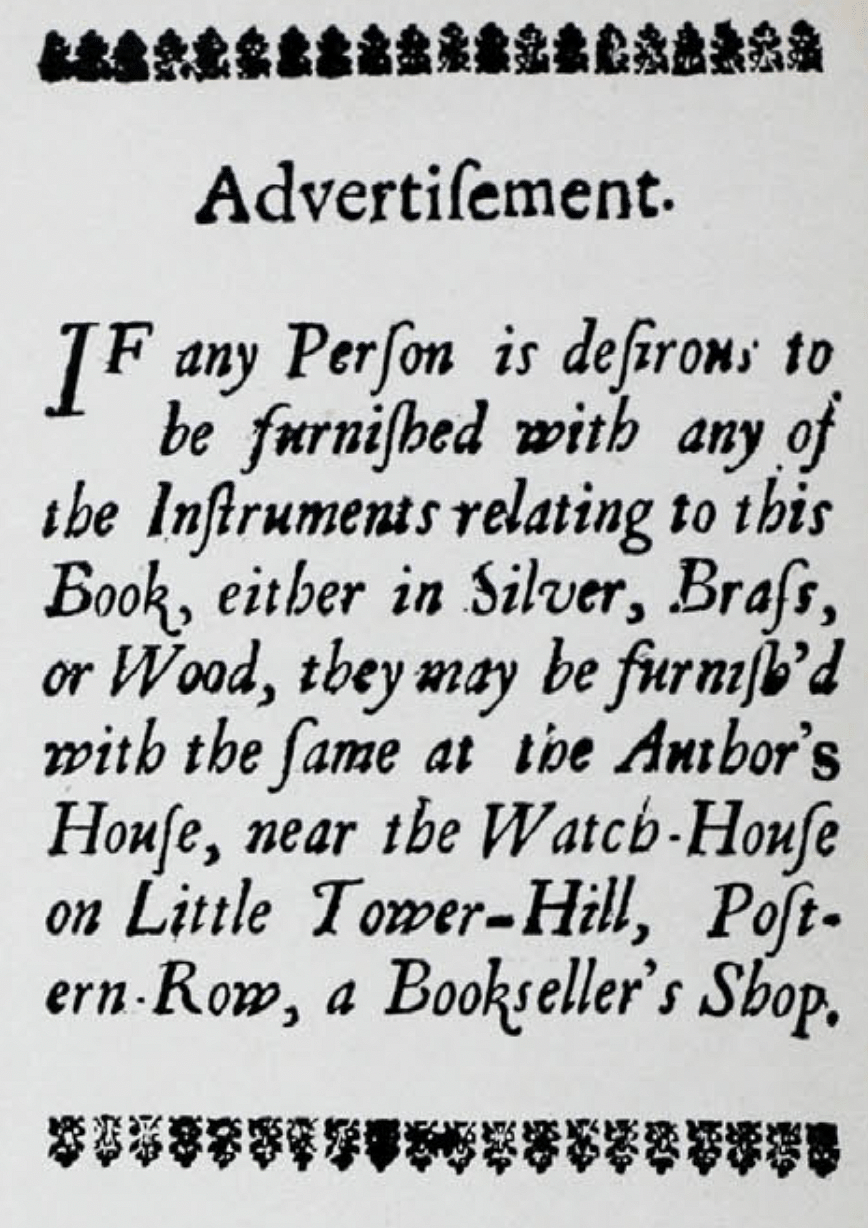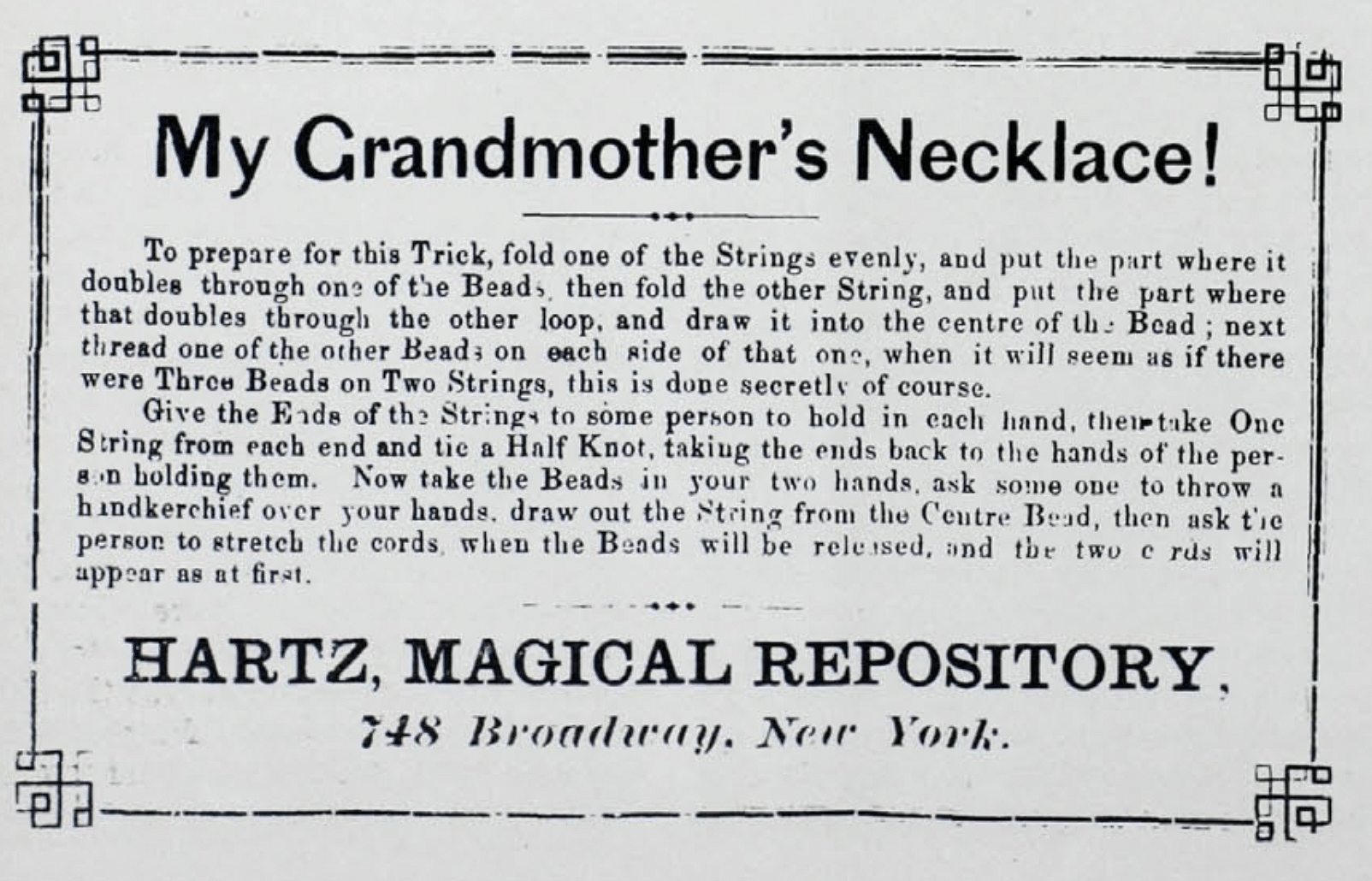The Oldest Magic Store In America
We came across an old article in The Sphinx, Vol. 40, Issue 7, page 12 concerning the oldest magic store. We're reproducing it below.
 There have been many who followed the occupation of John Wellington Wells, a dealer in magic and spells, whom Gilbert and Sullivan immortalized in their operetta "The Sorcerer." From what hints may be found in very old books it may be guessed that the first men to deal in apparatus for magic made up a few copies of the feats they performed in their own shows and sold these copies to other magicians.
There have been many who followed the occupation of John Wellington Wells, a dealer in magic and spells, whom Gilbert and Sullivan immortalized in their operetta "The Sorcerer." From what hints may be found in very old books it may be guessed that the first men to deal in apparatus for magic made up a few copies of the feats they performed in their own shows and sold these copies to other magicians.
The first advertisement offering any considerable number of tricks, and probably the first advertisement of a magic shop, appeared at the end of the first edition of Henry Dean's book called The Whole Art of Legerdemain or Hocus Pocus in Perfection. This volume was published in London in 1722 and contained over ninety tricks and the majority needed special apparatus. A facsimile reproduction of that page advertisement of Henry Dean's is reproduced here.
Before there were any magic shops in America a few toy and game stores sold sets of tricks which were manufactured abroad. Most of these sets were put up in attractively decorated boxes. The tricks in the main were very similar in the various sets.
 The tricks rather short lived and in the main were very similar in the various sets. There would be several wooden vases and boxes, each having a secret compartment; a bodkin having a blade which would slide back in the handle; removing button-molds from strings (known as "The Grandmother's Necklace"); and the Pillars of Solomon. The more costly the set the more tricks the box would contain and the larger the box. The writer has such a box which was in one family for over a hundred years. Unfortunately the various generations using the box lost some of the equipment and it is impossible to know the complete list of tricks it originally contained. There is no record of their having been a magic shop in America at the time that box of tricks was purchased in a New York store.
The tricks rather short lived and in the main were very similar in the various sets. There would be several wooden vases and boxes, each having a secret compartment; a bodkin having a blade which would slide back in the handle; removing button-molds from strings (known as "The Grandmother's Necklace"); and the Pillars of Solomon. The more costly the set the more tricks the box would contain and the larger the box. The writer has such a box which was in one family for over a hundred years. Unfortunately the various generations using the box lost some of the equipment and it is impossible to know the complete list of tricks it originally contained. There is no record of their having been a magic shop in America at the time that box of tricks was purchased in a New York store.
The first magic shop in America seems to have been in New York and run by M. Hartz. This shop according to all the
Information which can be gathered was rather short lived and was in no way connected with the later shop off Hartz and Levy although it was the same Hartz in each instance. H . L . Judd, it is said, opened his shop prior to that of Hartz and Levy but after "The Hartz Magical Repository" had closed. Incidentally most of the old shops had imposing names—Repository, Emporium, or Palace, no matter how unpretentious or tiny the premises were. For instance, the shop of D. Malini located on Grand Street, near Havemeyer Street in Brooklyn was advertised in most glowing terms, but actually was housed in the most minute quarters. The door of the store was wider than the show window and the whole building was so narrow that a step ladder was employed to reach the upper floor. However, his place was neat and he had some excellent apparatus for sale.
Another of the very old dealers whose name is all but forgotten today was a Mr. Bates. He had a tiny shop too but it was quite big enough for him to build a new show for Harry Kellar not very long after Kellar had returned from his tour of the world. A good many of these early dealers were themselves exceptionally fine mechanics and cabinet makers. It was their job to make the apparatus according to the idea of the magician placing the order, except in certain standard pieces which were copies of equipment imported from Europe. Some of the dealers would make only the special jobs and would import the regulation apparatus. In short most of the old time dealers were custom shops fulfilling the ideas supplied by their customers. It was a much later date when the dealers themselves began originating effects and equipment, or buying ideas which they could manufacture.
The first American dealers outside of New York were C. Milton Chase, in Boston; Tom Yost, in Philadelphia, and Charles L. Burlingame, in Chicago. Robert Nickel was Yost's original partner in his shop. Burlingame used to engage for his work an exceptionally fine wood worker named Gus Roterberg and he encouraged Roterberg to go into the magic business. Roterberg built up a wonderful business in Chicago and a following all over the world. As big as Burlingame's business was, and as fine equipment as he sold, it is strange to find his fame today rests more upon the books which he wrote than upon his magic business.
